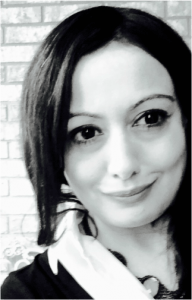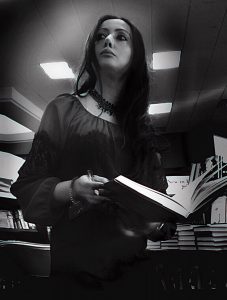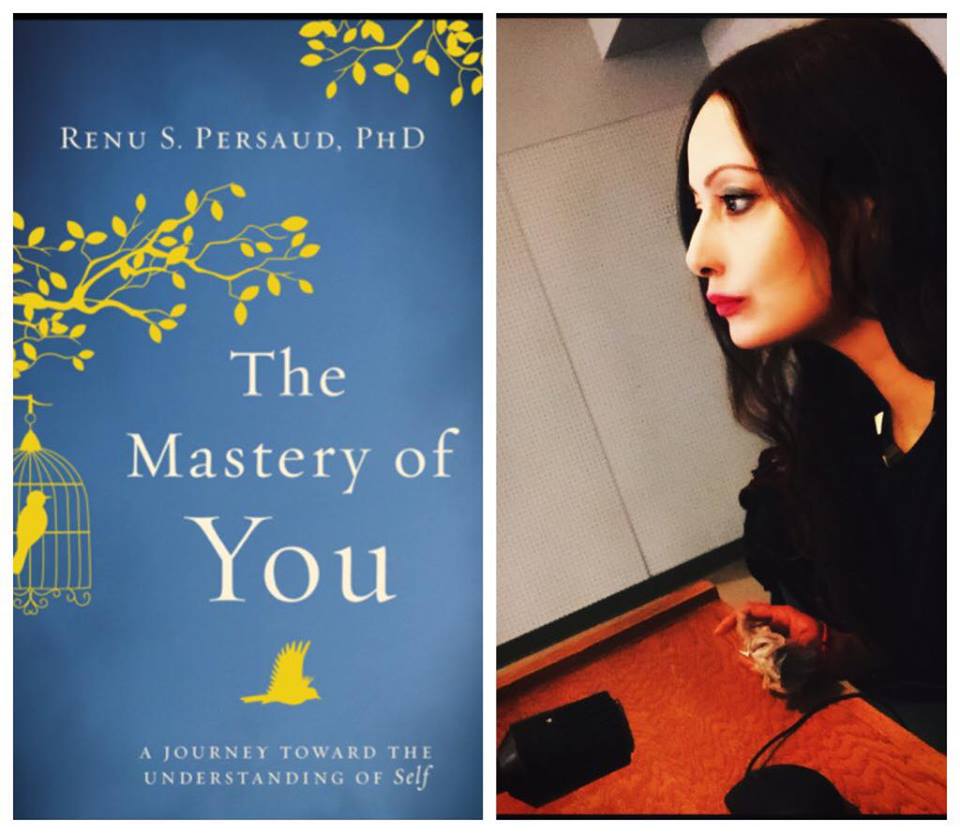INTERVIEW WITH DR. RENU S PERSAUD, THE AUTHOR OF THE MASTERY OF YOU

Renu S Persaud is an award-winning Canadian professor and lecturer in social sciences. She has a PhD from the University of Toronto and teaches in the University of Windsor. Dr. Persaud is actively involved in research on the sense of self and well-being.
Her new narrative non-fiction book The Mastery of You has received critical acclaim. Published by Waldorf Publishing USA, it is expected to be released on October 15, 2017.
Ponderwall: When did you decide to write The Mastery of You?
Renu S Persaud: The Mastery of you is my lifetime in the making. Having the time to write is what has been difficult. I knew as a young child that I wanted to make a difference in the world. After a compelling experience, I decided that my life path was to show the world that a strong sense of self and identity is what matters.
However, the time to write was difficult for me. It was not until after my career was progressing well, and my girls were older, that I was able to write. I did this for years and the end product is my book.
What are the main messages conveyed in this book?
My main message is quite simple: to be kind to others, you must, first, be kind to yourself. I surmise it as: the greatest form of betrayal is self-betrayal. Yet this message is corrupted by humanity’s lack of sensitivity toward each other. So it becomes complex, but it shouldn’t be.
Some passages are very poetic. It sounds as if you had a poetry collection in mind when you started writing it. Is that right?
Correct. As writers, we gain our identity from our own unique style. Given a topic, say about trees for example, we can all write and convey ideas about trees. However, our style of writing, narrative elements and literary flair are what make us unique. As I wrote, I wanted a serious tone of narrative non-fiction. But I also wanted my ideas to flow with emotion and bewilderment, hence, my interwoven poetic elements.

Being self-centered is a stance between pragmatism and selfishness. How can we tame the latter and make of self-centrism a positive social force?
As social scientists, much of what we concentrate on are social interactions with others. We can agree that the self is formed and driven from these interactions. Hence, while being purely our own, our Self is also informed by our interactions, and the treatment we receive from others. Here is where the self-centered stance becomes critical. How? Because when we focus on our self, we learn to appreciate the others’ stance in our interactions, even if their stance is different and unique from our own. To understand them, we must be selfish to nurture our own understanding of things. When we are comfortable and know our selves well, we do not try to change others or repress them.
There’s a theory saying that empathy does more harm than good. Because sharing others’ agonies without being able to help is meaningless. Is this the same take of The Mastery of You?
I think of empathy, as I do of so many other concepts, on a continuum. A continuum is a line drawn, and on each end are two extremes to infinity: extremely empathic to sociopathic (lacks empathy). In life, we seek balance. And similarly with empathy, it is all about balance.
Surely, we do not have space or time to reach out and comfort all the people around us. But an empathetic understanding allows us to appreciate their realities. This leads to comparison.
When we compare our realities, we gain an appreciation for what we have, what we lack, or what we need to work on. Therefore, we can argue, empathy has various forms. The empathy that I see as important is more a practical form of empathy, less emotional. It is an empathy not only about feeling, but I envision empathy being used for practical social regard and change to the human condition. Perhaps Utopian, but the fact that people are interested in The Mastery of You is beyond what I ever envisioned. It shows that there is an interested audience.
Have you worked on this book with a disciplined deadline-driven pace?
The pace was intense. I could not work within a framed deadline, given my busy schedule. Waldorf Publishing has been supportive and I am fortunate to have had understanding from many involved people. But there were also strict industry deadlines that must be adhered to.

Who are your favorite authors?
I love reading from the gaze of various cultures and disciplines. I take inspiration from Sartre’s philosophical depth, Naguib Mahfouz’s flare for connecting unassuming words, Sufi’s poetic genius, Atwood’s views of the world and justice.
Have you been able to find enough time to read during your writing process?
I am fortunate to have reading ingrained in my work. I read as I prepare for lectures, and research various topics. This allows me to connect with many genres of reading material, not simply scholarly reading.
I bring pop-culture, poetry, philosophy, and controversial elements to my lectures. I am fortunate that I get to read with variety. Leisurely reading is difficult, do we ever have enough of that? Regardless of how busy my life is, my bedside is piled with books and I read for 15 minutes every night. This is part of my “alone time” routine.
The recent statistics show that print books are taking the lead again. Do you prefer reading in print or electronic formats?
The smell, feel of a book is immeasurable to anything else in my opinion. To enjoy the reading process, all the senses must gel in synergy. However, the way we read is less important, so long as we read and open our minds.
Some writers are still attached to the typewriters. Others prefer the pen and paper. What about you?
Pen and paper. I like the process to be as intimate as possible. My hand writing expresses my emotions. As my mind thinks, my hand manifests the thought on paper. There is an invisible pull from one to the other. Anything in between is diluting.
Have you already started working on a new book?
A poetry collection and follow-up to The Mastery of You.
Novels and poetry can convey complex social and philosophical rhetoric in the most efficient way. Would you consider making your next book a novel or a poetry collection?
Absolutely. Much of my poetry is driven by my feelings and heartache from my experiences. The beauty of poetry is that we can costume intense thoughts and experiences, leaving it to the vastest fields of others’ interpretation.
A natural object, a tree for example, sitting quietly in a vast field, can be interpreted in so many ways. The onlookers see the object based on their own experiences. Because all our experiences are unique. No two people will see anything alike.
Do you think Bob Dylan deserves his Nobel prize? If the same radically progressive approach gets further support, they may one day select a twitter account for the Man Booker award.
This is a very complex situation. From a social science stance, we can only aspire to change by doing things that are not perceived as conventional. We must delve through boundaries. Something new is always radical until more people are accepting it. This is precisely what furthers our humanity.
Your writing style is carefully elegant and of literary flavor. Does that come from your personal character or from your readings?
I am grateful that my writing has been perceived as “elegant.” Writers write with heart. This heartening process for the writer then translates as his own style. Thus, my heartfelt writing is a conduit for the perceived elegance and literary flare. It comes from my being, and my being is tied to my knowledge, which is in turn tied to the works I have read. It is a synergy of sorts.
What’s your favorite music?
Everything you can think of: Reggae, Opera, Indian, etc.
Who’s your favorite historical celebrity?
Leonardo DaVinci, he was an intellectual, artist, and scientist. We see through his work that the artist and scientist are inextricably connected. One feeds the other.
What’s your favorite novel?
This really depends on genre, I have so many! Being and Nothingness by Jean-Paul Sartre, but also the work of Rumi, Shakespeare, Joyce, Melville, Dickens, and Mahfouz.
Best of luck with The Mastery of You. It looks and sounds great. What would you say to encourage our readers to buy it?
It is for anyone who wants to believe in who they are.
